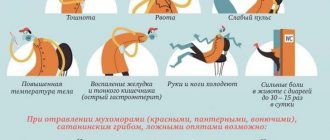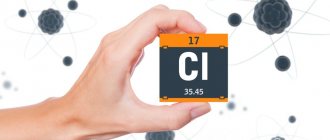Anonymously
Around the clock
Attention! The material contains information about substances, the use of which can cause serious harm to your health!
Drug poisoning is a widespread phenomenon in relevant circles. The main danger is an overdose of toxic substances, which the addict, in pursuit of the next dose, may not keep track of. In second place is, to put it mildly, the low quality of drugs. A cheap surrogate is often a mixture of poisons. Moreover, manufacturers of handicraft products add substances to its composition that are absolutely incompatible with living tissues, for example, washing powder, soda, chalk and others. Lack of timely assistance for drug poisoning can lead to irreversible consequences in the body and death.
- Drug intoxication: what is it?
- Causes of drug intoxication
- Signs of drug poisoning
- Consequences of intoxication for the body
- Types of drug poisoning
- Glue poisoning
- Ketonal poisoning
- Analgesic poisoning
- Clonidine poisoning
- Opium drug poisoning
- Poisoning with psychotropic substances
- Narcotic salt poisoning
- Chronic intoxication
- Acute drug intoxication
- Relieving drug poisoning: advice from a narcologist
- First aid for drug poisoning
- Drug therapy for drug poisoning
- How to relieve drug poisoning at home
- Droppers for drug intoxication
- Drug poisoning pills
- Treatment of drug poisoning in the hospital "Zdravnitsa"
Base
- Narcologist on call 24/7, within 40 minutes
- Consultation with a narcologist
- Dropper 500 ml
- Purpose of therapy
- Tablet course for three days
- Monitoring the patient's condition after the procedure
4,700 RUB
Call a doctor
Standard
- Narcologist on call 24/7, within 40 minutes
- Medical examination
- Consultation with a narcologist
- Dropper 1000 ml
- Purpose of therapy
- Tablet course for three days
- Monitoring the patient's condition after the procedure
5900 RUB
Call a doctor
Intensive
- Narcologist on call 24/7, within 40 minutes
- Medical examination
- Consultation with a narcologist
- Dropper 1500 ml
- Purpose of therapy
- Tablet course for three days
- Monitoring the patient's condition after the procedure
8900 RUB
Call a doctor
Standard
- 6-bed ward
3,000 RUB
Comfort
- 2-bed ward
RUB 5,500
VIP
- 1-bed ward
8,000 RUB
We will select an individual treatment plan
Free consultation 8-800-200-27-23
Drug intoxication: what is it?
Drug intoxication is a pathological condition based on dysfunction of all organ systems. May be acute or chronic. The severity depends on:
- type of drug;
- duration of use;
- dosage;
- composition of the drug;
- the presence of diseases of internal organs.
Symptoms may appear instantly or develop progressively over several hours. Unfortunately, most drug addicts confuse the signs of poisoning with the effect of the drug and do not seek help, which is why death is a common outcome.
Causes of drug intoxication
Among the most common causes of drug poisoning are:
- overdose;
- low quality of the drug;
- simultaneous use of several types of drugs;
- taking the usual dose after a long break or detoxification;
- using a substance during illness;
- human inexperience;
- the presence of unfamiliar toxic additives in the composition.
Of particular danger is mixing the drug with alcohol, as a result of which the effect is enhanced several times.
HOW TO MOTIVATE A DEPENDENT FOR TREATMENT
Signs of drug poisoning
The symptoms of drug poisoning are different and depend on the type of active component. In general terms, the following signs of intoxication can be identified:
- dilated/constricted pupils;
- pale skin;
- decrease/increase in blood pressure;
- increased/decelerated heart rate;
- convulsions;
- lethargy;
- nausea, vomiting;
- respiratory depression;
- disorientation in space;
- hallucinations, delusions;
- loss of consciousness.
The most severe condition develops when the drug is injected into a vein - symptoms appear almost instantly. Drugs taken orally lead to a gradual increase in signs of intoxication.
REHABILITATION
Consequences of intoxication for the body
Drug poisoning does not go away without a trace, even with a successful outcome. An addict may develop complications and consequences such as:
- damage to the heart muscle;
- vascular collapse;
- failure of the liver, kidneys, pancreas;
- congestive pneumonia;
- brain damage;
- decreased intelligence;
- weakening of the immune system.
Damage to internal organs resulting from drug poisoning is irreversible and haunts a person throughout his life, even if he no longer uses drugs.
Paracetamol
Paracetamol is included in many analgesics and antipyretics. The toxic dose for adults is 5-7 g, lethal - about 15-20 g. It is rapidly absorbed, the maximum concentration in the blood is observed after 1-2 hours. Approximately 30% is bound to plasma proteins. Excreted in urine in the form of conjugation products with glucuronic and sulfuric acid. Death occurs from acute liver failure and cerebral edema. Its toxic effect on the liver is due to the depletion of hepatic glutathione reserves, and the subsequent accumulation of a toxic metabolic intermediate, N-acetyl-p-benzoquinoneimine.
Symptoms of poisoning
In the first 24 hours, there is aversion to food, nausea, vomiting and profuse sweating. The activity of liver enzymes begins to increase after 48 hours and reaches a maximum at 72-96 hours. If liver failure does not develop, recovery begins approximately 4 days after the time of poisoning.
Treatment
Gastric lavage is performed. Activated carbon is used if no more than 1 hour has passed since taking the drug. Laxatives are not used.
To prevent toxic liver damage, a specific antidote is prescribed in the first 8 hours - N-acetylcysteine, which acts as a glutathione substrate. The drug may also have a beneficial effect when used later (up to 36 hours). The initial dose of N-acetylcysteine is 140 mg/kg, the drug is given orally or administered through a nasogastric tube. For ease of administration, the drug is dissolved in juice or water. Further treatment – 70 mg/kg every 4 hours for three days. If vomiting occurs less than 1 hour after taking N-acetylcysteine, it is given again in the same dose. If vomiting recurs and interferes with the intake of N-acetylcysteine, selective blockers of serotonin 5-HT3 receptors are prescribed: tropisetron 5 mg once daily IV or ondansetron 4-8 mg twice daily IV. If these drugs are not available, droperidol is prescribed at a dose of 0.6-1.2 mg IV 1-3 times a day.
Within 3 days, it is necessary to re-determine the activity of aminotransferases, the level of bilirubin, blood urea nitrogen and prothrombin time. In case of poisoning with several toxic substances, when multiple doses of activated carbon are indicated, it is given 2 hours after taking N-acetylcysteine. Before each dose of N-acetylcysteine, the patient’s stomach is washed. Side effects include rash, bronchospasm, hot flashes and anaphylactoid reactions.
In the absence of N-acetylcysteine, methionine is prescribed (10 g per day). Hemosorption and hemodialysis for severe poisoning are indicated in the first 10 hours - only if it is not possible to carry out full antidote therapy.
Types of drug poisoning
Depending on the type of drug and clinical manifestations, intoxication can be of different types.
Glue poisoning
Intoxication due to inhalation of toxic vapors is manifested by symptoms such as:
- respiratory depression;
- heartache;
- hallucinations;
- convulsions;
- bluish skin tone.
The addict becomes aggressive and irritable. Overdose leads to fainting and coma.
Ketonal poisoning
Ketonal is a non-steroidal anti-inflammatory drug that is prescribed for severe pain and inflammatory processes, mainly in the tissues of the musculoskeletal system. The active ingredient is ketoprofen. Poisoning with the drug leads to severe central nervous system disorders: hallucinations, psychoses, nightmares, disorientation in space, speech disorders.
Analgesic poisoning
Some analgesics, for example, Ketanov, have side effects in the form of: swelling of the skin and lungs, hallucinations, visual and hearing impairment, psychosis, depression. Taking a large dose of the drug leads to poisoning, increased side effects, and can cause respiratory arrest, convulsions, loss of consciousness, coma, and even death.
Clonidine poisoning
The medicine Clonidine is intended to lower blood pressure. An overdose leads to severe poisoning, which is manifested by symptoms such as:
- heart rhythm disturbance;
- a sharp decrease in blood pressure;
- decreased body temperature;
- constriction of the pupils;
- pallor;
- weakness;
- coma.
Uncontrolled use ultimately leads to the death of the drug addict.
Opium drug poisoning
Opium drugs are highly toxic, so their use often leads to death. The following signs are characteristic of drug poisoning with morphine or other opiates:
- decrease in heart rate;
- disturbance of consciousness;
- bluish skin;
- narrow pupils;
- incomprehensible speech;
- paralysis of limbs;
- breathing disorder.
In the absence of medical care, intoxication with morphine and other opiate drugs leads to pulmonary and cerebral edema and death.
Poisoning with psychotropic substances
Substances of this group affect the cells of the nervous system, as a result of which the mental state of the drug addict changes. They can be stimulants of the central nervous system (amphetamine, cocaine) or, on the contrary, cause its depression (sedatives, for example, Diphenhydramine), so the symptoms of drug poisoning vary. In general, the following signs of overdose of psychostimulants and sedatives can be noted:
- panic attacks, anxiety;
- tremor, cramps of the arms and legs;
- a state of numbness or, conversely, excessive activity;
- heart rate decreases or increases;
- pain in the heart;
- frequent or rare breathing;
- loss of consciousness;
- severe pain in the head.
Intoxication with psychotropic substances especially severely undermines the condition of the heart and brain. An overdose can cause a heart attack. And even if assistance is provided in a timely manner, the neurons of the central nervous system will not recover, which will further affect mental abilities and psyche.
DETOXIFICATION FOR DRUG ADDICTION
Narcotic salt poisoning
Salts are hallucinogens and are considered one of the most dangerous types of drugs. They cause severe addiction and severe withdrawal symptoms. Salt poisoning can quickly lead to death for a drug addict. Among the symptoms:
- a sharp increase in blood pressure;
- severe vomiting;
- convulsions;
- hemorrhages in the eyes;
- high heart rate;
- hallucinations;
- loss of consciousness, coma.
Salt intoxication requires the rapid arrival of specialists, as minutes often count.
TREATMENT OF SALT DEPENDENCE
Chronic intoxication
Chronic drug poisoning is the gradual accumulation of toxic substances in tissues as drugs are consumed. Over time, the poisons deposited in the organs completely destroy the body. In this case we are talking about the length of service.
REMOVAL AT HOME
Acute drug intoxication
Unlike the chronic form, acute drug poisoning occurs immediately, for example, as a result of an overdose.
List of used literature
1. WHO. "Opioid overdose."
2. Vertkin A.L., Khubutia M.Sh. "Guide to Emergency Medical Services."
3. Artyunina G.P., Gonchar N.T., Ignatkova S.A. "Pre-hospital medical care."
4. Marchenko D.V. "First aid for injuries and accidents."
5. Ostapenko Yu.N. "Poisoning with drugs and psychedelics."
6. Ostapenko Yu.N. “Poisoning by cocaine and psychostimulants that cause addiction.”
7. Fedotova O.G. "Emergency first aid."
Share
Share
Relieving drug poisoning: advice from a narcologist
Is there a way out of drug intoxication? Below are recommendations from our clinic’s narcologists.
First aid for drug poisoning
- First of all, if you have symptoms of drug poisoning, you should call an ambulance. It is best if this is a specialized drug treatment team. Specialists have with them all the medications necessary in such cases.
- The drug addict should be placed on his side; if convulsions are observed, a rolled-up cloth should be placed between the teeth.
- If there are signs of cardiac arrest, chest compressions and artificial respiration should be performed.
- If a drug addict loses consciousness or falls asleep, cotton wool soaked in ammonia is brought to the nose.
- In a state of overexcitation, a person needs to be calmed, restrained, and, if necessary, even tied up, since at the moment of exacerbation of psychosis and hallucinations, he poses a danger to himself and others.
Find out treatment recommendations without leaving home for free
To select a treatment plan, you just need to leave a request, we will contact you to select the time and specialist you need
Submit your application
Drug therapy for drug poisoning
Specialists who arrive on call will administer drug therapy based on the characteristics of the case. Medicines are selected strictly in accordance with the substance used, which was the cause of poisoning. If there is an antidote to it, the doctor will immediately use it.
DRUG THERAPY FOR DRUG ADDICTION
How to relieve drug poisoning at home
In case of drug poisoning, you should not give any medicine to a person! The reaction may be unpredictable and lead to rapid death. If the drug addict is conscious, it is allowed to take sorbents, for example, activated carbon. Only a professional narcologist knows how to reduce the severity of symptoms of drug intoxication.
DRUG CARE AT HOME
Droppers for drug intoxication
The first thing the doctor will do is to ensure detoxification of the body. It can be carried out at home in the form of a dropper or in a hospital (ultra-fast detoxification, laser and other options). The goal is to quickly neutralize and remove toxic substances from the body. The composition of the dropper is selected individually. It may include: diuretics that support the liver and heart, sleeping pills, and so on.
DROPPER AT HOME
Drug poisoning pills
In case of drug poisoning, a specialist may prescribe pills such as:
- sorbents, for example, activated carbon;
- medications to stop vomiting;
- vitamin and mineral complexes.
In addition to those listed for alcohol intoxication, the narcologist will prescribe symptomatic drugs: anti-inflammatory, analgesics, anticonvulsants, sedatives or others.
Diagnostics
Diagnostic criteria
Poisoning with tricyclic antidepressants can be suspected based on the following conditions:
· Known to consume a toxic dose of a tricyclic drug.
· High concentration of TCA in the blood was detected.
NOTE: The large volume of distribution and serum values provide little information about the extent of toxicity and diagnosis is best made in the clinic.
History taking
To compile a detailed medical history, you need to ask a number of questions:
- How many tablets were taken? What type of preparation? Gastroresistant?
- When did the reception take place? Was the drug taken all at once or in parts?
- What specific drug was used and who gave the prescription?
- Do other people have access to the drug?
- Has the patient also taken alcohol, drugs, or other pills?
- Did the patient vomit? Were there any attempts to induce vomiting?
- Was activated carbon or another sorbent used?
- Circumstances of admission: depression, suicide attempts, accident?
Clinical data
Check vital signs and anticholinergic effects of tricyclic antidepressants:
· Decreased consciousness.
· Dilated pupils.
· Dry warm skin and general hyperthermia.
· Tachycardia.
· Thirst and dry mouth.
· Urinary retention and decreased intestinal motility (decreased bowel sounds).
· Delusions and hallucinations.
· More serious findings: arrhythmias (most serious bradyarrhythmias), hypotension, seizures, coma.
Other studies
Follow-up examinations of the patient's health status are carried out in the hospital:
· Basic acid state (blood gases).
· Serum electrolytes: creatinine, glucose.
· Electrocardiogram. Low voltage T waves, possibly inverted T waves, ST depression, widened QT interval, increased height of U waves, increased width P waves with notches. A widespread QRS complex indicates the severity of the condition. A QRS complex lasting more than 100 ms is often an indicator of cardiotoxic effects: severe arrhythmia and heart block, ventricular tachycardia and fibrillation. Less severe arrhythmias may also occur as sinus b adycardia, sinus arrest, or sinoatrial block.
· A chest x-ray is performed if there is decreased consciousness and suspicion of aspiration pneumonia.
In case of suspected overdose of tricyclic antidepressants, the patient should be immediately hospitalized and examined for the degree of poisoning.
Treatment prices:
| Service | Price, rub) |
| Types of therapies | |
| Standard detoxification therapy | 3 500 ₽ |
| Double Detox Therapy | 6 000 ₽ |
| Enhanced Detoxification Therapy | 7 500 ₽ |
| Maximum detoxification therapy | 9 500 ₽ |
| Quick sobering up at home | 7 500 ₽ |
| Hospital at home 1 day | 22 000 ₽ |
| Advanced hospitalization | 15 000 ₽ |
| Treatment in hospital | |
| Accommodation | |
| Economy chamber (6 beds) | 2 000 ₽ |
| Standard room (4 beds) | 3 000 ₽ |
| Increased comfort (2 seater) | 5 500 ₽ |
| VIP chamber (1 person) | 12 500 ₽ |
| Individual post 24/7 | 5 000 ₽ |
| Medical and social rehabilitation 21 days | 140 000 ₽ |
| Service | Price, rub) |
| Initial consultation with a narcologist | for free |
| Consultation with a psychologist | 3 000 ₽ |
| Psychiatrist consultation | 5 000 ₽ |
| Coding at home Torpedo | 7 500 ₽ |
| Express output and encoding (doublet) | 13 500 ₽ |
| Coding using the Dovzhenko method | 12 000 ₽ |
| Hypnosis classic session | 13 000 ₽ |
| Ericksonian hypnosis session (NLP) | 8 000 ₽ |
| Coding method Torpedo | 5 500 ₽ |
| Double block | 8 000 ₽ |
| Esperal injection for 1 year | 9 900 ₽ |
| Tetlong for 3 months | 10 500 ₽ |
| Esperal gel for 1 year | 15 000 ₽ |
| Selincro course of therapy | 12 500 ₽ |
| Implantation of Disulfiram for 1 year | 18 000 ₽ |
| Vivitrol injection for 1 month | 26 000 ₽ |
| Naltrexone stitching for 3 months | 35 000 ₽ |
| Neuroimplantation Prodetoxon for 6 months | 47 500 ₽ |
| Narcopsychotherapy session | 50 000 ₽ |
| Neutralization of encoding | specify |
| Psychodiagnostics / pathological diagnostics | 7 500 ₽ |
| Psychotherapy session | 5 000 ₽ |
| Family psychotherapy | 6 000 ₽ |
| Outpatient rehabilitation in Moscow | 33 000 ₽ |
Expand
If necessary, the drug addict will undergo such measures as: incubation, catheterization, resuscitation, and so on.
All the efforts of our specialists are aimed at saving people from drug death.
Article verified by an expert
Terekhova Anna Vladimirovna
psychologist-consultant on socio-psychological work with addicted clients and their families. More than 10 years of experience.
Similar articles:
The drug salt: signs of use and treatment
Stages of drug addiction
Drug testing
Feelings and emotions of a codependent person. How to learn to feel again?
Opium addiction
One comment on “Drug poisoning: first aid”
- Karina:
June 21, 2021 at 03:53
First aid for poisoning by any substance that has entered the body through the mouth is to rinse the stomach and intestines and take adsorbents that accelerate the removal of toxins from the body.
Answer
Anticholinergics
The toxic effects of scopolamine, atropine, aprofen, trihexyphenidyl (Trifen, Romparkin, Parkopan, Cyclodol), diphenhydramine (Diphenhydramine), promethazine (Pipolfen), datura, henbane, and belladonna fruits are based primarily on their m-anticholinergic effect, and with the development of this background of anticholinergic syndrome.
Symptoms : increased muscle tone, tremor, spasmodic torticollis, trismus, laryngospasm, dysphonia, dysphagia, short-term memory disorders, verbosity, euphoria, micro-optical hallucinations, incoherent slurred speech, delirium, and in extremely severe poisoning - coma. Characterized by mydriasis, dryness and hyperemia of the skin and mucous membranes, tachycardia, shortness of breath, hypertension, fever. The severity of symptoms correlates with the severity of poisoning. Mydriasis persists for 3-7 days after relief of acute intoxication. Mortality is low.
Treatment
Gastric lavage, administration of activated charcoal and laxatives are often difficult due to the patient’s excited state, spasticity, and increased muscle tone. Gentle fixation of the patient is carried out. In case of inadequate breathing, deep coma, tracheal intubation and mechanical ventilation are performed. Arterial hypotension, as a rule, can be eliminated by intravenous administration of crystalloid solutions. Forced diuresis is indicated. Heart rhythm disturbances are identified and treated according to accepted recommendations.
To facilitate contact with the patient, in case of mild to moderate poisoning, you can use 1-2 mg of physostigmine or 10 mg of galantamine IV (if no arrhythmia is recorded). For agitation, benzodiazepines (diazepam, midazolam) are used. Pilocarpine – 1-2% solution, 2 drops in each eye to reduce mydriasis. In case of severe hyperthermia, the patient is physically cooled.
Clozapine
This is an atypical antipsychotic. There is depression of consciousness of varying depths with periods of unexpressed psychomotor agitation, dysarthria, decreased muscle tone, prolonged miosis (up to 10-12 hours) and pallor. Blood pressure is moderately reduced or normal, tachycardia. Various heart rhythm disturbances are possible. There is no extrapyramidal rigidity.
Treatment
Therapy includes gastric lavage with the introduction of activated charcoal and a laxative. Particular attention should be paid to thorough bowel movements, for which repeated administration of activated charcoal and a laxative is used. Forced diuresis is ineffective. In deep coma and signs of respiratory failure, tracheal intubation and mechanical ventilation are indicated. In some cases, you can limit yourself to intubation and assisted ventilation of the lungs, with frequent sanitation of the trachea (hypersalivation is pronounced).
In the early stages after poisoning (several hours), physostigmine is used as an antidote in a dose of 2-3 mg, the intravenous administration of which is accompanied by a rapid regression of neurological symptoms and restoration of consciousness. In case of severe poisoning, hemosorption or plasmapheresis is used; hemodialysis is not effective.









